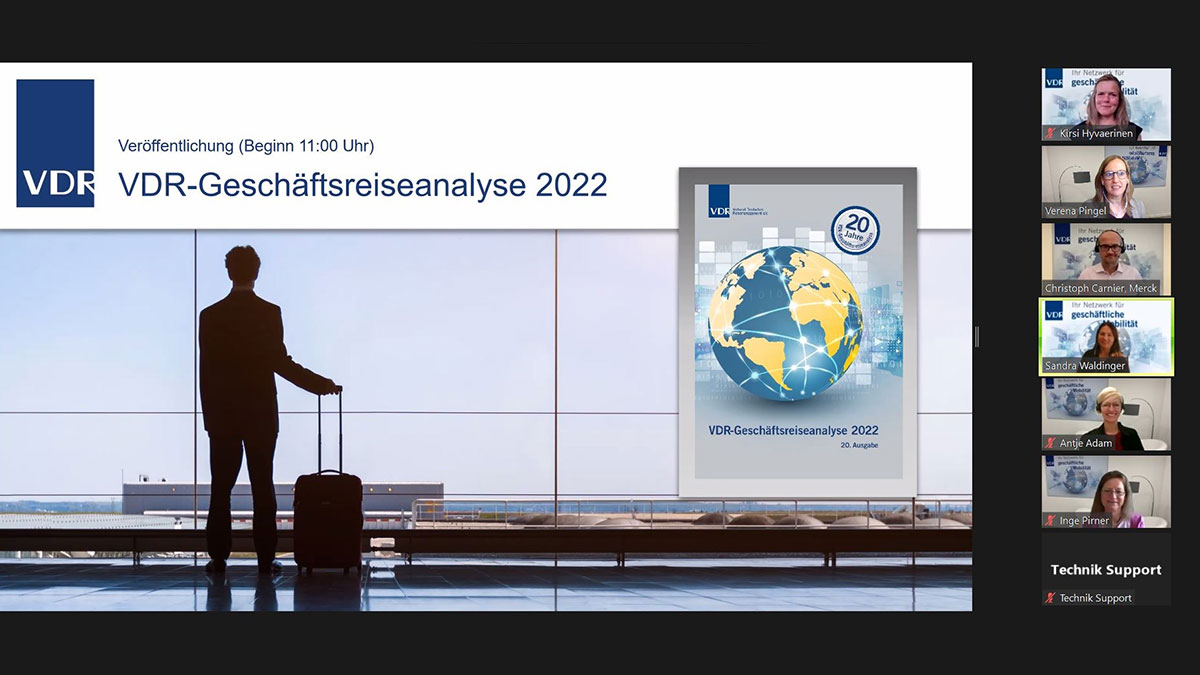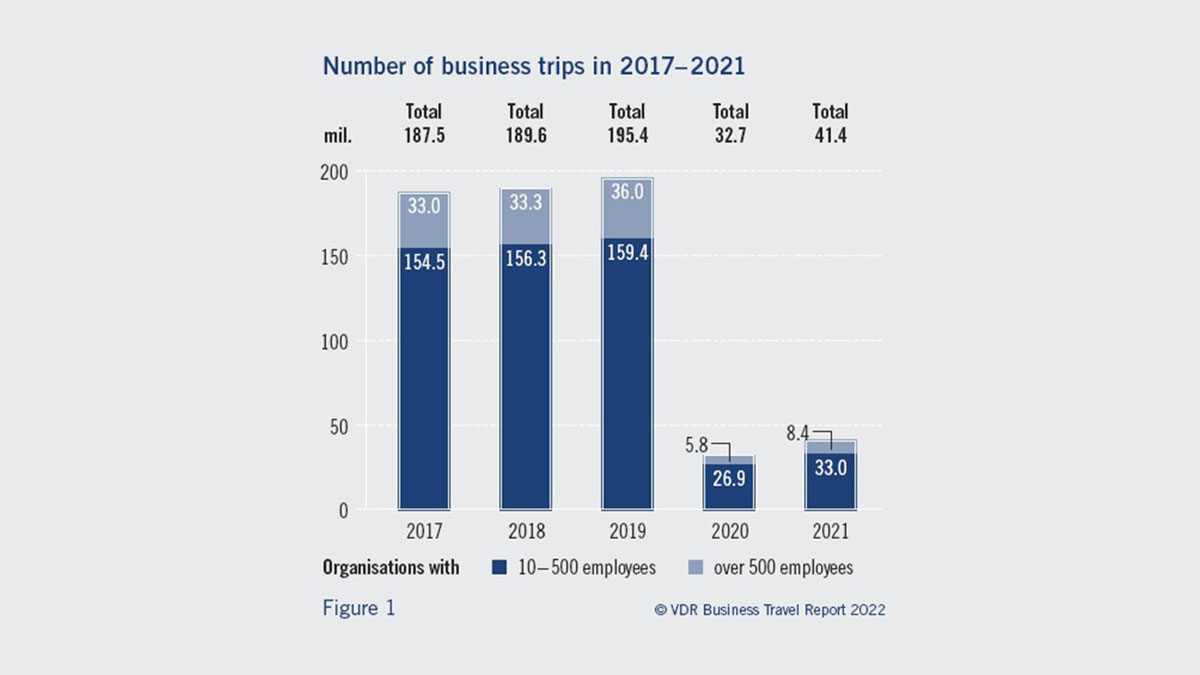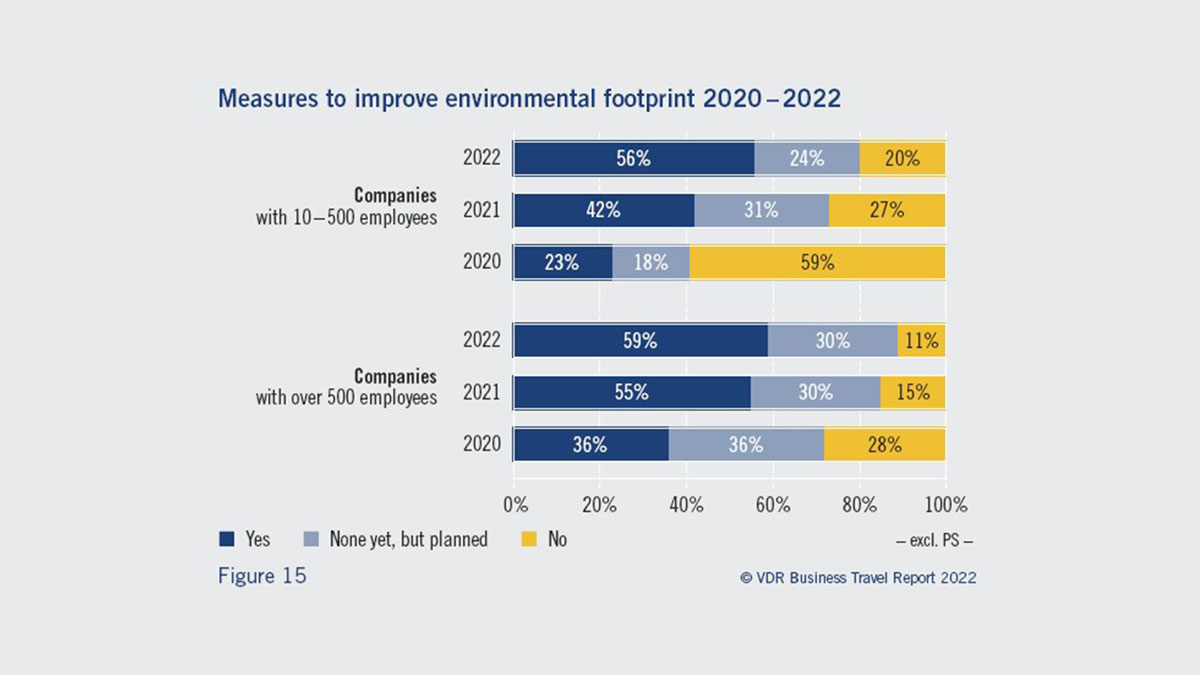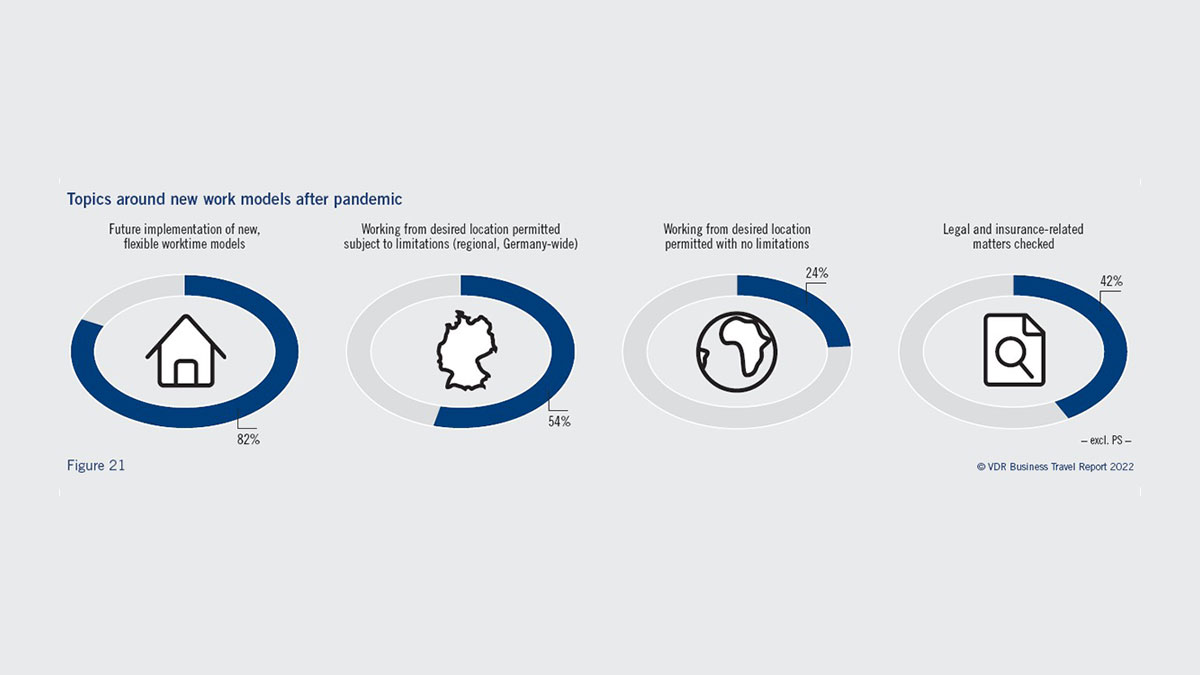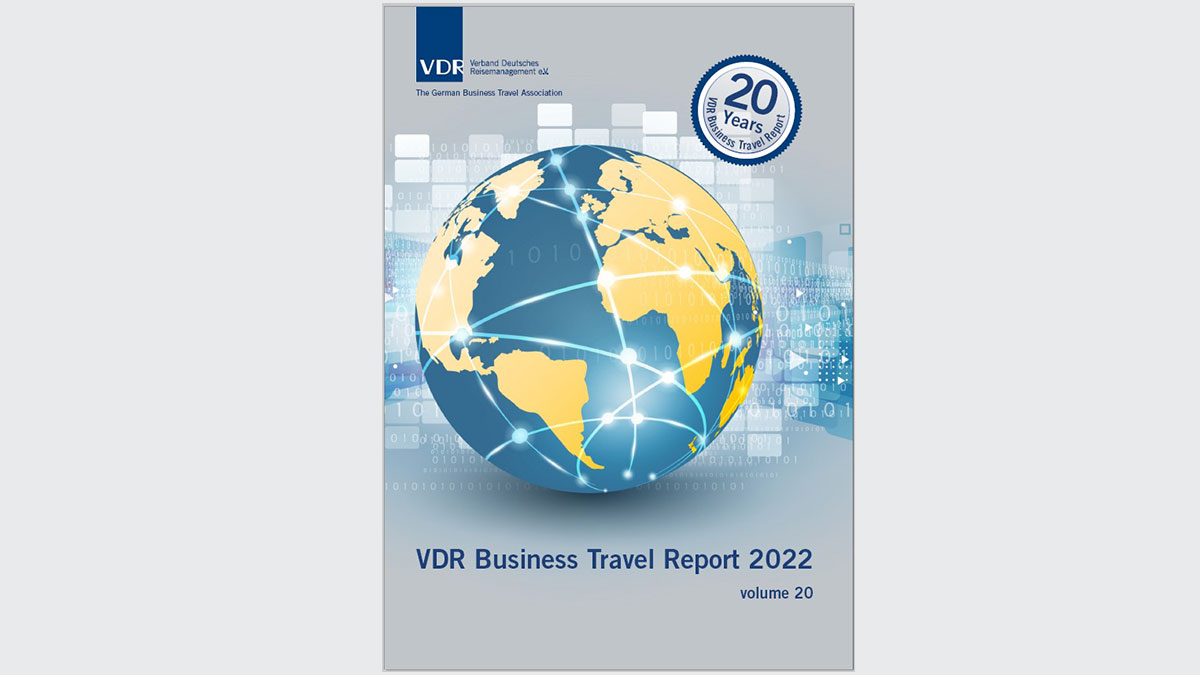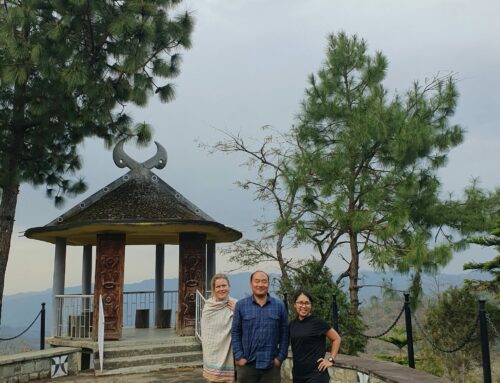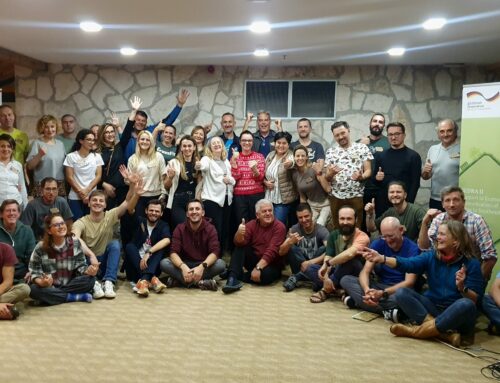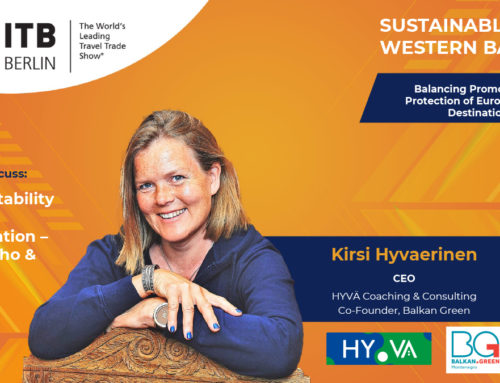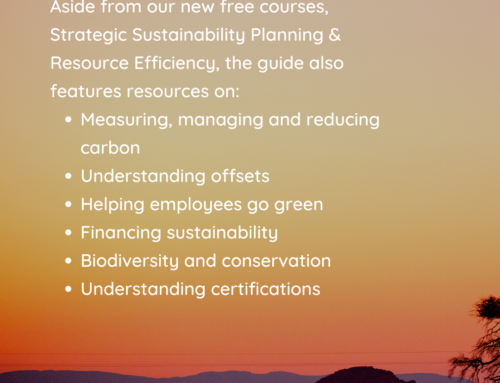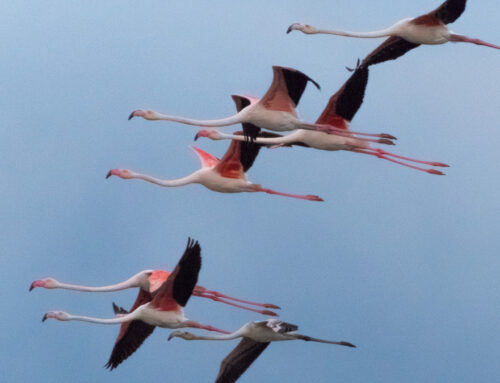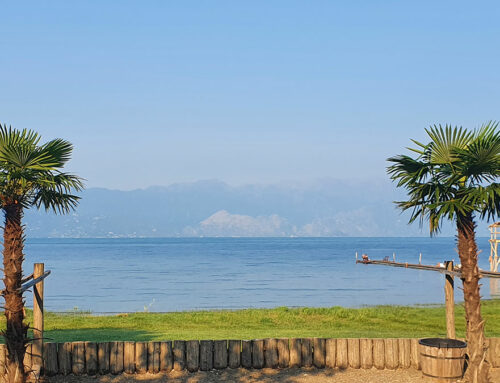50 years after the “Limits of Growth” of the Club of Rome and in our 20th year of the VDR Business Travel Report Germany unveiled today, we see a major focus on sustainability and climate protection – from “nice to have” to the norm.
Thank you for the great questions in today’s publication event!
Here you can watch the recorded live presentation and discussion in German language.
The Report looks at the travel behaviour, management issues and predictions of German companies and public sector organisations.
Business travel has become possible again, even though as a society, we are still struggling with several concurrent challenges. The “epochal shift”, a term used in abundance this year, began in the business travel sector back in March 2020 and the shock of the pandemic is by no means over. And even though we are happy to be “back to business”, business travel is likely to fall in the long run for several reasons. But by how much? How will the way we work change? Might sustainability efforts lose out to economic problems after all? Who is responsible for integrated mobility management at companies? What should current and future partnerships with service providers look like? The 20th Report once again presents both facts and figures as well as a range of future-relevant topics.
Increasing calls for commitment to sustainability
With the anticipated expansion of the EU’s Corporate Sustainability Reporting Directive (CSRD), large and listed companies will have an even greater obligation than before to report on sustainable actions and business practices. Nevertheless, the Report showed that sustainability reporting is still “not an issue” for 28 per cent of companies with more than 500 employees. For smaller companies, this proportion is even higher at 41 per cent. Overall, however, this year’s Report shows that the number of companies actively working towards more sustainability in the business travel sector continues to rise. Sustainable planning is becoming more and more the rule in business and so it is no surprise to learn that only one in five of the smaller companies is not yet active in sustainability planning. The Report shows that there has been a significant increase in the number of larger companies implementing measures to reduce their carbon footprint over the past two years, with a rise from 72 per cent to the current 89 per cent – only 11 per cent are still not implementing any topics in this regard. The public sector is similarly active here, with 80 per cent addressing such issues.
Business travel on the rise again
“The results show that there has been a surge in business travel demand. Business travellers have a lot of catching up to do when it comes to meeting clients and colleagues and cultivating business contacts in person. This will always be important in business and online meeting formats are not always a satisfactory substitute. The Report also reveals the trend towards longer-lasting business trips, which began to emerge last year. The popularity of the pre-pandemic one-day business trip is now waning. Business travellers now tend to travel less often but for longer, pooling several business trips together.” said VDR Vice President Inge Pirner.
Here to stay: “New Work” through digital transformation
Digital transformation in communications and in cooperation accelerated in 82 per cent of companies due to the pandemic. An identical number of employers will continue to implement new, flexible work models going forward. Mobile work and remote work models are also gaining traction in cases where it is not necessary for employees to be present for a certain number of hours at the company’s offices. Working from a desired location is permitted by 54 per cent of companies and one in four plans to allow their employees to work from wherever they want worldwide.
Outlook: Emerging with clarity from the crisis
“Crises are generally unpredictable and uncontrollable, but they also create openness for the new. They are a turning point that can lead to a negative or a positive outcome. Crises can be a temporary phenomenon or they can lead to a fundamental questioning of established practices and institutions. Crises can hone awareness and willingness to develop new ideas and solutions.”[1]
In view of the fact that we are dealing today with several concurrent crises that are requiring change in all areas of industry and society, it would seem very difficult to gain anything positive from them. While in 2020 humanity was struggling to agree on whether handwashing, social distancing, masks and quarantining contributed to flattening the curves of repeated Covid-19 waves, the upcoming challenges are of a different scale altogether. Since February, we have been confronted with the additional burden of the Ukraine war and its devastating consequences.
Globally, the climate crisis and the loss of biodiversity are tidal waves that need to be not just flattened but halted. On 4 May 2022, people living in Germany had already consumed the volume of environmental resources the planet can renew per person in an entire year.[2] Some of the reasons for this are the ongoing overconsumption of energy and the high carbon emissions caused by transport. Extrapolated to the global population, that lifestyle would require an area three times the size of the planet.
The pathways towards solutions are clear. In collaboration with government, companies can embark on many of them, such as redesigning infrastructure, decarbonising energy systems, shaping workplaces, mobility and processes more efficiently in terms of resources, redirecting the flow of finance.
The words of Bill Clinton at the Global Summit of the World Travel and Tourism Council in 2013 ring truer today than ever. He forecast that in the subsequent 20 years, the travel industry would lead the charge in rethinking policy on the energy industry. And that peace is the prerequisite and engine of everything that comes next. “Peace works better than conflict, and one of the best manifestations of it is in travel and tourism.”[3]
We can choose to confront the crises constructively and with a will to reshape the world, or we can choose paralysis. As individuals, as companies and organisations, as those responsible for regions and countries, it helps to focus in the next 20 years on what humanity has created and can create. This can bring positive change.
For the full VDR Business Travel Report in both English and German, go to: www.geschaeftsreiseanalyse.de
VDR press release in English (PDF download)
Here a slide show (3 minutes) with the key results, in German
[1] Krafft, A. (2022). Ursachen und Folgen von Krisen. In: Unsere Hoffnungen, unsere Zukunft. Springer, Berlin, Heidelberg, p. 59 ff.
[2] Earth Overshoot Day marks the date on which humanity’s demand for environmental resources and services in a certain year exceeds what the planet can regenerate in that year. See: https://www.overshootday.org/ and https://perspective-daily.de/article/2027-klimakrise-diese-6-hebel-koennen-uns-noch-retten/gqaCbWFF (in German)
[3] The Telegraph 10 April 2013: https://www.telegraph.co.uk/travel/news/Bill-Clinton-praises-tourisms-power-for-peace/
